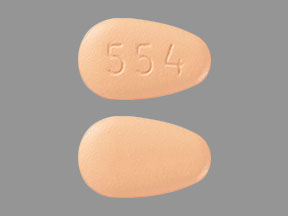Steglujan Disease Interactions
There are 8 disease interactions with Steglujan (ertugliflozin / sitagliptin).
- Liver dysfunction
- Renal dysfunction
- Renal dysfunction
- Pancreatitis
- Hypotension
- Infections
- Heart failure
- Liver dysfunction
SGLT-2 inhibitors (applies to Steglujan) liver dysfunction
Major Potential Hazard, Moderate plausibility. Applicable conditions: Liver Disease
Sodium-glucose cotransporter 2 (SGLT2) inhibitors ertugliflozin and canagliflozin are not recommended for use in patients with severe hepatic impairment due to lack of clinical data. Sotagliflozin is not recommended for use in patients with moderate to severe hepatic impairment. Dapagliflozin has not been studied in patients with severe hepatic impairment and caution is recommended. The manufacturer's product labeling should be consulted for specific dosing of SGLT2 inhibitors in patients with hepatic impairment.
SGLT2 inhibitors (applies to Steglujan) renal dysfunction
Major Potential Hazard, Moderate plausibility.
The glucose lowering effects of sodium-glucose cotransporter 2 (SGLT2) inhibitors are decreased in patients with worsening renal function. Additionally, patients with impaired renal function (estimated GFR less than 60 mL/min/1.73 m2), older adult patients, and patients on loop diuretics may be more likely to experience adverse reactions related to volume depletion such as hypotension and acute kidney injury during therapy. Renal function should be evaluated prior to treatment initiation and monitored regularly in at-risk patients. Volume status should be assessed and volume depletion corrected before initiating therapy. The use of SGLT2 inhibitors in patients undergoing dialysis is either contraindicated or not recommended. The manufacturer product information should be consulted for contraindications and indication specific renal dosing.
DPP-4 (applies to Steglujan) renal dysfunction
Moderate Potential Hazard, High plausibility.
It is recommended to assess renal function prior to initiating treatment with DPP-4 inhibitors and periodically thereafter. Patients with moderate to severe renal insufficiency and end stage renal dysfunction will require a dose adjustment. Linagliptin will not require a dose adjustment per manufacturer's information. Additionally, there have been postmarketing reports of worsening renal function in some patients with renal insufficiency taking sitagliptin at inappropriate doses.
DPP-4 inhibitors (applies to Steglujan) pancreatitis
Moderate Potential Hazard, Low plausibility.
There have been postmarketing reports of acute pancreatitis in patients taking DPP-4 inhibitors. These drugs should be used with caution in patients with a history of pancreatitis or pancreatic disease, although it is unknown if they are at increased risk. Patients should be observed for signs and symptoms of pancreatitis during treatment. If pancreatitis is suspected, treatment should be discontinued immediately and appropriate management should be initiated.
SGLT2 inhibitors (applies to Steglujan) hypotension
Moderate Potential Hazard, Moderate plausibility. Applicable conditions: Renal Dysfunction
Sodium-glucose cotransporter 2 (SGLT2) inhibitors cause intravascular volume contraction which may lead to symptomatic hypotension after treatment initiation, especially in older adult patients, patients with impaired renal function, patients with low systolic blood pressure, or those using diuretics. Volume status should be assessed and corrected before starting treatment and patients should be monitored during therapy.
SGLT2 inhibitors (applies to Steglujan) infections
Moderate Potential Hazard, Moderate plausibility. Applicable conditions: Infection - Bacterial/Fungal/Protozoal/Viral
Sodium-glucose cotransporter 2 (SGLT2) inhibitors increase the risk of genital mycotic infections. Care should be exercised when using an SGLT2 inhibitor in patients who have a history of chronic or recurrent genital mycotic infections or who are uncircumcised as these patients are more likely to develop genital mycotic infections. Patients should be monitored and treated appropriately.
Sitagliptin (applies to Steglujan) heart failure
Moderate Potential Hazard, Moderate plausibility. Applicable conditions: Congestive Heart Failure, Renal Dysfunction
Consider the risks and benefits of sitagliptin prior to initiating treatment in patients at risk for heart failure, such as those with a prior history of heart failure and a history of renal impairment. Observe these patients for signs and symptoms of heart failure during therapy.
Sitagliptin (applies to Steglujan) liver dysfunction
Moderate Potential Hazard, Moderate plausibility. Applicable conditions: Liver Disease
Sitagliptin has not been studied in patients with severe liver dysfunction
Switch to professional interaction data
Steglujan drug interactions
There are 403 drug interactions with Steglujan (ertugliflozin / sitagliptin).
Steglujan alcohol/food interactions
There are 2 alcohol/food interactions with Steglujan (ertugliflozin / sitagliptin).
More about Steglujan (ertugliflozin / sitagliptin)
- Steglujan consumer information
- Check interactions
- Compare alternatives
- Pricing & coupons
- Reviews (1)
- Drug images
- Side effects
- Dosage information
- During pregnancy
- FDA approval history
- Drug class: antidiabetic combinations
- En español
Related treatment guides
Drug Interaction Classification
| Highly clinically significant. Avoid combinations; the risk of the interaction outweighs the benefit. | |
| Moderately clinically significant. Usually avoid combinations; use it only under special circumstances. | |
| Minimally clinically significant. Minimize risk; assess risk and consider an alternative drug, take steps to circumvent the interaction risk and/or institute a monitoring plan. | |
| No interaction information available. |
See also:
Further information
Always consult your healthcare provider to ensure the information displayed on this page applies to your personal circumstances.


